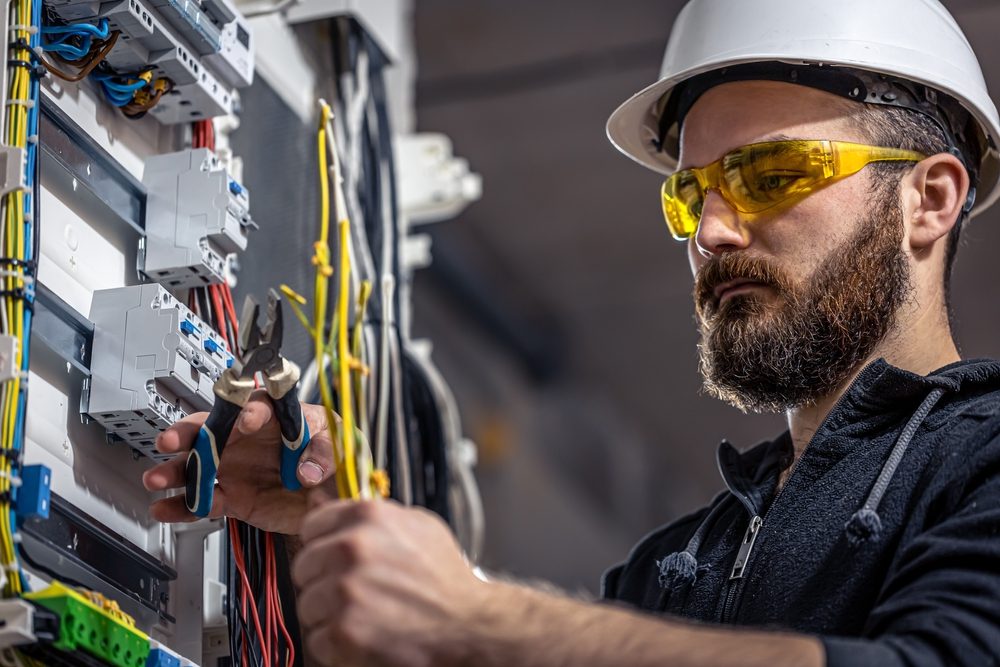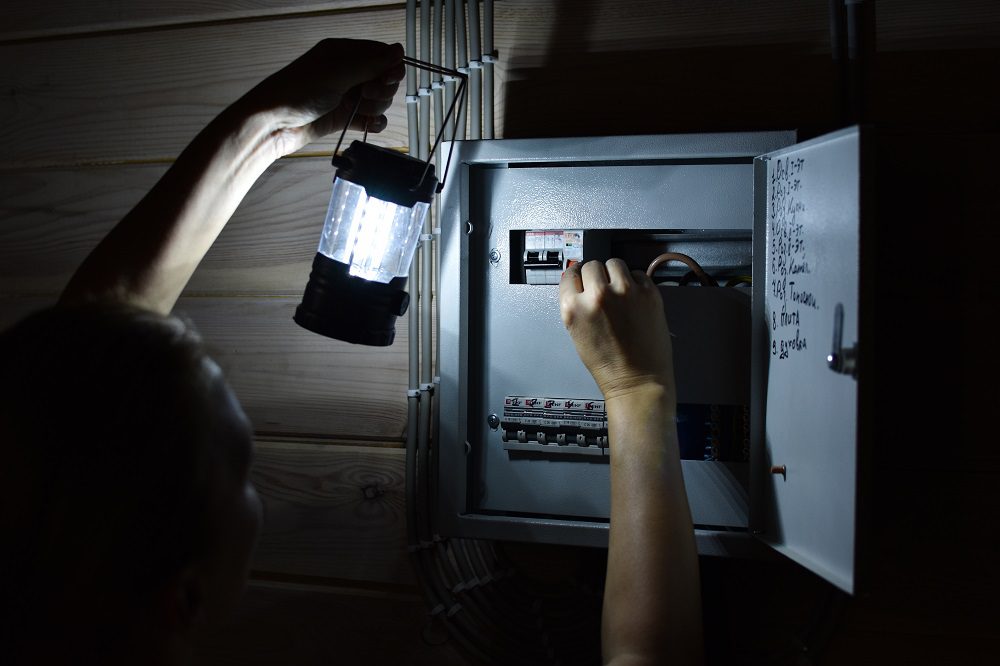
Electrical Repair Costs Explained: From Fixing Shorts to Rewiring a 2,000 sq ft Home
Charlotte homeowners call when a breaker trips every day, lights flicker after a storm, or a home addition needs power. Price is the next question. Electrical repair cost depends on fault location, panel capacity, access, and code updates. This article explains realistic ranges for Charlotte, NC neighborhoods and shows how Ewing Electric Co estimates work so a homeowner can budget without guesswork.
What drives electrical repair cost in Charlotte
Labor rates, material quality, and code compliance shape most invoices. In Mecklenburg County, a licensed electrician’s hourly rate usually falls between $110 and $165, with a one to two-hour minimum. Permits and inspections add time but protect resale value and safety. Older homes in Plaza Midwood, Dilworth, and Wesley Heights often have plaster walls or legacy wiring that adds access time. Newer builds in Ballantyne or Highland Creek may be faster to service but sometimes require arc-fault or GFCI upgrades to meet current code.
Small jobs cost less when access is clean and parts are standard. Hidden faults, water damage, aluminum branch circuits, or overloaded panels increase scope. A well-documented estimate should separate diagnostic time from the fix and flag any code-required upgrades so there are no surprises.
Typical repair scenarios and price ranges
Short circuits and tripped breakers: A frequently tripping breaker may point to a bad appliance, a shorted receptacle, or an overloaded circuit. Diagnostic visits usually run $150 to $300 in Charlotte, which covers the first hour and common parts. Replacing a bad receptacle or switch often totals $150 to $250 per device. If heat damage spread to the box or wiring, expect $250 to $450 for repair and testing.
GFCI and AFCI issues: Kitchens, bathrooms, exterior outlets, and bedrooms need GFCI or AFCI protection by code. Swapping a standard outlet for a GFCI typically ranges from $175 to $275 installed. Upgrading a breaker to an AFCI or dual-function AFCI/GFCI breaker runs $200 to $400 each, factoring in the breaker cost and panel work.
Lighting problems: A loose neutral can cause flicker on multiple fixtures, especially after a storm in neighborhoods with mature trees like Myers Park. Troubleshooting and tightening terminations may land between $200 and $400. Replacing a standard ceiling fixture is often $150 ewingelectricco.com what is electrical repair to $300 if the box is rated and the switch leg exists. Adding a new recessed light where there is attic access can be $250 to $450 per can, with economies of scale on multiples.
Ceiling fans: Replacing a fan with existing wiring and a rated box typically costs $200 to $350. Upgrading to a fan-rated box and running a new switch leg can lift the total to $350 to $600, depending on attic access and ceiling height.
Breaker and panel repairs: Replacing a single breaker is usually $150 to $300. If the panel shows corrosion, hot spots, or is a recalled brand, the discussion changes from repair to replacement. Panel replacements in Charlotte commonly range from $2,200 to $4,500 for a 150–200-amp modern panel with new main bonding, labeling, and permits. Service upgrades that involve a new meter base, mast, and coordination with Duke Energy can run $3,500 to $7,000, influenced by exterior routing and utility scheduling.
Grounding and bonding: Many older homes lack a modern grounding electrode system. Adding ground rods and bonding gas and water lines usually falls between $350 and $900, sometimes bundled with panel work. This improves safety and reduces nuisance tripping on GFCI/AFCI devices.
EV chargers and dedicated circuits: A 240V circuit for a Level 2 EV charger often costs $650 to $1,400, depending on panel distance and wall type. Homes with full panels may need a subpanel or load management device, which can add $500 to $1,200.
Troubleshooting shorts vs replacing circuits
A short could sit at a single outlet, inside a light fixture, or behind a wall staple that nicked the cable. The fastest wins come from isolating sections and testing. If a circuit fails insulation resistance tests across multiple legs, localized repair will not hold. Running a new home run from the panel can be cheaper than exploratory cuts across several rooms. In ranch-style homes in Madison Park or Starmount, attic access often keeps new runs in the $350 to $800 range per circuit. In two-story homes without attic access over the first floor, fishing walls and patching can push a single new circuit to $900 to $1,800.
What it really costs to rewire a 2,000 sq ft home in Charlotte
The spread is wide because house design, wall types, crawlspace conditions, and code upgrades change the labor curve. For a typical 2,000 sq ft home, the total electrical repair cost for a full rewire usually lands in these bands:
- Economy rewire for a one-story with good attic and crawl access: $12,000 to $18,000, including new copper branch circuits, tamper-resistant receptacles, modern grounding, GFCI/AFCI protection, and permits. Plaster repairs minimal.
- Mid-range rewire for two-story with partial access and some drywall repair: $18,000 to $28,000, reflecting more fishing, patching, and time labeling circuits.
- Complex rewire with plaster walls, limited access, and panel/service upgrade: $28,000 to $45,000. Historic homes in Dilworth or Elizabeth can fall here due to careful wall entry, lath routing, and fixture preservation.
These totals assume 15 to 25 circuits, modern kitchen and bath requirements, exterior receptacles, and smoke/CO interconnection. Add-ons like can lighting throughout or extensive smart controls increase material and labor.
Permits, inspections, and why they matter for price
The City of Charlotte permit fees for a residential electrical project are modest compared to labor, but the process adds time for scheduling and documentation. Passing inspection protects resale and insurance claims. A proper estimate should mention permit handling, rough and final inspections, and utility coordination on service work. Unpermitted work may look cheaper upfront but often costs more to correct later, especially if a sale or home inspection flags it.


How Ewing Electric Co builds a clear estimate
A good estimate earns trust. Ewing Electric Co starts with diagnostic testing and visual inspection, then separates must-fix safety items from wish-list items. Photos and labeled notes show the path through the home. Pricing is line-by-line so a homeowner can phase work if needed.
Two details matter for cost control. First, access planning. Protecting floors, using right-sized cutouts, and fishing from attics or closets cuts drywall repairs. Second, parts selection. Using quality copper wiring, spec-grade devices, and panel components that match the listing reduces callbacks and breaker nuisance trips.
Real-world examples from Charlotte jobs
A SouthPark condo with nuisance GFCI trips in the kitchen tested fine until a dishwasher cycle. The neutral was shared with a disposal on an old two-wire setup. The fix was to separate the circuits at the panel and install a dual-function breaker. Total: $520 with parts and labeling.
A ranch in Madison Park had half the living room die after a storm. The issue was a backstabbed receptacle with heat damage. Replacing the device, pigtailing conductors, and testing the rest of the chain came to $265.

A two-story in Highland Creek needed four new circuits for a home office, garage freezer, and two bathrooms. The panel had space. With attic access above the second floor and crawlspace under the first, the total landed at $2,150, including AFCI/GFCI protection and permit.
How to decide between repair and upgrade
A single failed device or breaker is a repair. Repeated trips across multiple rooms, warm breakers, or discolored outlets suggest system issues. Homes with aluminum branch wiring, cloth-insulated cable, or no grounding benefit from broader upgrades. If three or more rooms show faults across different circuits, replacement often beats piecemeal repairs on cost per year of reliability.
What homeowners can check before calling
- Identify what went out: just one outlet, a room, or multiple rooms.
- Note any recent changes: new appliance, storm, or renovation.
- Try a simple reset: GFCI test and reset buttons in bathrooms, kitchen, garage, exterior.
- Check the panel: look for a breaker that sits between on and off, then reset firmly.
- Take photos: panel labeling, devices with scorch marks, or flickering fixtures for reference.
If a breaker will not reset or there is a burning smell, leave it off and call. That scenario points to a short or a failing breaker that needs a licensed electrician.
Timeline and what to expect on site
Small repairs usually finish in one to two hours. Circuit additions land in the half-day range. Panel swaps are a day, including power-off periods that Ewing Electric Co schedules to avoid food loss and major disruption. Full rewires run two to seven days depending on access and patching. Crews protect floors, keep pathways clear, and clean daily. For rewires, a plan for wall patches is part of the conversation before work begins so the handoff is smooth.
Neighborhood notes across Charlotte
Historic houses near Dilworth and Elizabeth often feature plaster and lath. Fishing new cable without broad cuts adds hours but preserves character. Brick ranches in Montclaire and Selwyn Park usually offer attic runs that keep costs moderate. Newer homes in Ballantyne, Steele Creek, and University City may have room in the panel but tighter AFCI rules, which add cost to device or breaker choices. Townhomes and condos have HOA rules and shared walls that require scheduling and sometimes after-hours coordination for hallway or meter-room access.
How to keep electrical repair cost down without cutting safety
An accurate scope, good access, and smart sequencing save the most. Group small fixes into one visit so the minimum charge applies once. Share photos and panel labels before the appointment so the truck rolls with the right breakers and devices. Approve code upgrades while the walls are open rather than revisiting later. Decline bargain parts that cause callbacks. The cheapest time to fix a hidden splice or bad neutral is while the electrician is already on the ladder.
Ready for a clear estimate in Charlotte?
Ewing Electric Co gives upfront pricing, clean workmanship, and local experience with Charlotte code and utility coordination. Whether it is a single GFCI, a panel that needs attention, or a full rewire of a 2,000 sq ft home, the team explains the path, the price, and the timeline in plain terms. Call Ewing Electric Co or request a visit online. Same-week appointments are available across Dilworth, Plaza Midwood, SouthPark, Ballantyne, University City, and nearby suburbs. Get a clear electrical repair cost before work begins and keep your home safe, quiet, and ready for what comes next.
Ewing Electric Co provides dependable residential and commercial electrical services in Charlotte, NC. Family-owned for over 35 years, we handle electrical panel upgrades, EV charger installation, generator installation, whole-home rewiring, and 24/7 emergency repairs. Our licensed electricians deliver code-compliant, energy-efficient solutions with honest pricing and careful workmanship. From quick home fixes to full commercial installations, we’re known for reliable service done right the first time. Proudly serving Charlotte, Matthews, Mint Hill, and nearby communities. Ewing Electric Co
7316 Wallace Rd STE D Phone: (704) 804-3320 Website:
https://ewingelectricco.com/ |
Google Site
Social:
Facebook |
Instagram |
Twitter
Map: View on Google Maps
Charlotte,
NC
28212,
USA